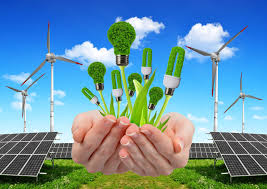ENSURE Project (Ecological traNSition in rUral aREas)
Grant TED2021-131397B-I00/AEI/10.13039/501100011033/ funded by MICIU/AEI/ 10.13039/501100011033 and by the European Union NextGenerationEU/PRTR.
Description
Ecological Transition and Digital Transition Project with funding of €276,000 from the Ministry of Science and Innovation and the European Union through the Next Generation funds, which began in December 2022 and will carry out all its actions until June 2025, following the grant of a 6-month extension to the execution period.
The objective of ENSURE project is to provide technical solutions for the ecological transition in rural areas. The project addresses two major challenges: the decarbonization of the economy and the development and improvement of life quality in the rural areas, and it tackles it from a global perspective, by developing a set of new technologies and techniques, analysing them not only individually but their complementarity, taking also into account their environmental footprint and socio-economic impact.
The ultimate goal is to contribute to a fully sustainable management of the rural environment with a quality of life comparable to the urban environment.
The ENSURE project provides multiple approaches to bring a further step towards the ecological transition by combining four innovative solutions in rural areas:
A technical solution that truly enables the massive integration of renewable energies in those areas.
The development of the sustainable use of biomass for various purposes, both for direct use in boilers that also include a Stirling engine for electricity production, as well as in the production of biochar for various valuable applications.
The integrated analysis of thermal heating systems based on electricity and their combination with biomass support to provide the required comfort in dwellings.
The inclusion of the circular economy applied to massive electric use in the rural environment, through second-life batteries.
Objectives
100% electric model for the rural environment (responsible IP, JM).
Sustainable use of biomass in the rural environment (responsible IP, JU).
Socio-economic and material footprint analysis (responsible IP, JU).
Methodology and workplan
To achieve the proposed specific objectives, the following five Work Packages (WP) are proposed:

